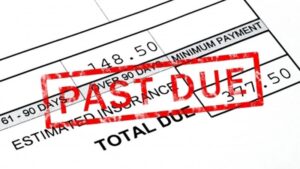Construction Debt: A Major Issue for the Industry

When it comes to construction debt, debt recovery for specialist contractors isn’t just about recouping losses; it’s about survival. Cash flow is the lifeblood of any business. Whether dealing with a few thousand pounds or several hundred thousand, every penny counts.
Yet, navigating construction contracts often leaves contractors short-changed or waiting indefinitely for payment. According to a recent report by Bibby Financial Services, subcontractors alone are burdened with writing off a staggering £2.8 billion in bad debts annually. Furthermore, 60% of subcontractors have experienced bad debt in the past year, with an average loss of £16,149 per firm. These numbers underscore the huge issue of non-payment and construction debt in the construction sector. A problem that can have crippling consequences, pushing businesses to the brink of collapse.
Understanding Construction Debt
The complexity of construction contracts is unfortunately a reason behind the epidemic of unpaid invoices. Contractors may find themselves not paid adequately or, worse, not paid at all, due to ambiguities or loopholes in contractual agreements. Such scenarios require expertise to navigate the intricacies of debt recovery. While keeping the business afloat, as this lack of payment can have devastating effects; placing strain, and even causing some to fold.
The Debt Recovery Process
At IL Recoveries, we employ a tailored approach to each case, utilising a range of techniques such as demand letters, statutory demands, and High Court enforcement. All to compel debtors to settle their obligations. Acting swiftly is paramount, and our team is dedicated to initiating prompt action to secure the funds owed to our clients.
From there we will be in contact with the debtor to try and settle the case without the need for legal action. Instead engaging with them and making demands for the payment of the debts. If the debt is still not repaid through these methods, we can then advise on legal proceedings.
Preventing Unpaid Invoices
Beyond recovery, prevention is key. By assessing the payment behavior of potential clients and identifying red flags such as frequent disputes or bounced checks, contractors can mitigate the risk of future losses.
The following questions are key to bear in mind when taking on a new client:
- Will they pay on time?
- Do they pay but are generally slow and need a push?
- Do they raise a lot of disputes?
- Will you be likely to have to take further action to recover any monies owed?
- Are they approaching you because a competitor has them on stop?
- Have they recently bounced cheques on other suppliers?
In conclusion, construction debt is not merely a financial concern—it’s a systemic issue that threatens the stability of an entire industry. By arming themselves with the right expertise and strategies, contractors can navigate the complexities of debt recovery and safeguard their livelihoods in an ever-evolving landscape.
If you are a construction company who needs debt recovery advice and assistance, please get in touch with us now at info@i10.303.myftpupload.com.
Debtor Alert: Theodore Global Ltd
Theodore Global Ltd: A Company That Fails to Pay Its Staff and Trades While Insolvent If you’re thinking about working with, or for Theodore Global…
Read MoreIrene MacKenzie- The Gatekeeper of Silence
Irene MacKenzie and the Web Around William Jackson In the shadows of the alternative investment world, where buzzwords are abundant but redemptions are not, one…
Read MoreBilly Jackson Update Part 2: Companies of Interest
In our last blog on Billy Jackson, we exposed the web of enablers supporting his business operations. In this follow-up, we turn the spotlight on…
Read MoreThe Grim Truth for Loan Note Holders -79th Luxury Living Six Ltd (LL6)
No assets or safeguards. No clear path to recovery. If you’re one of the many investors who entrusted your money to The 79th Group’s loan…
Read More



